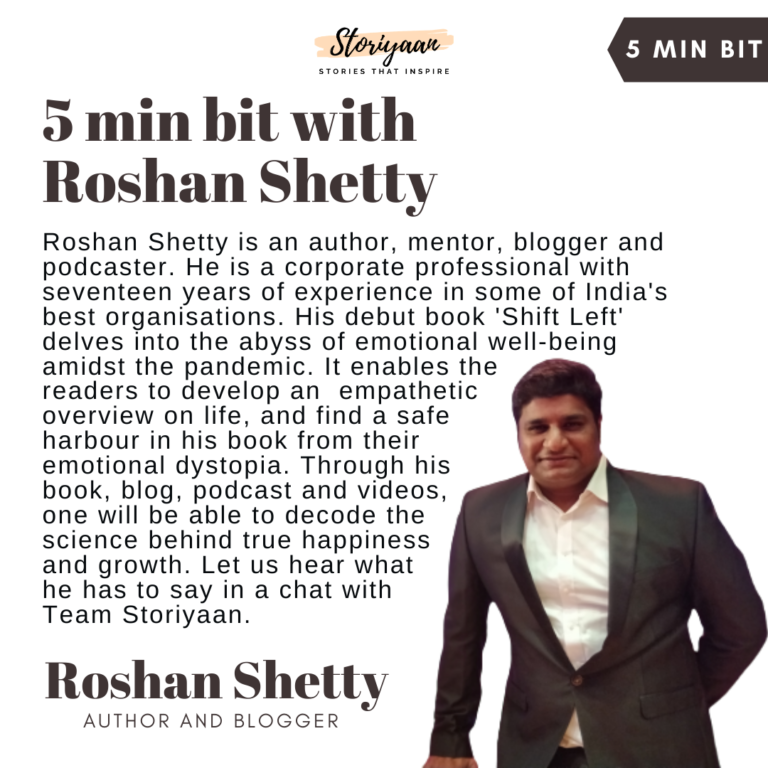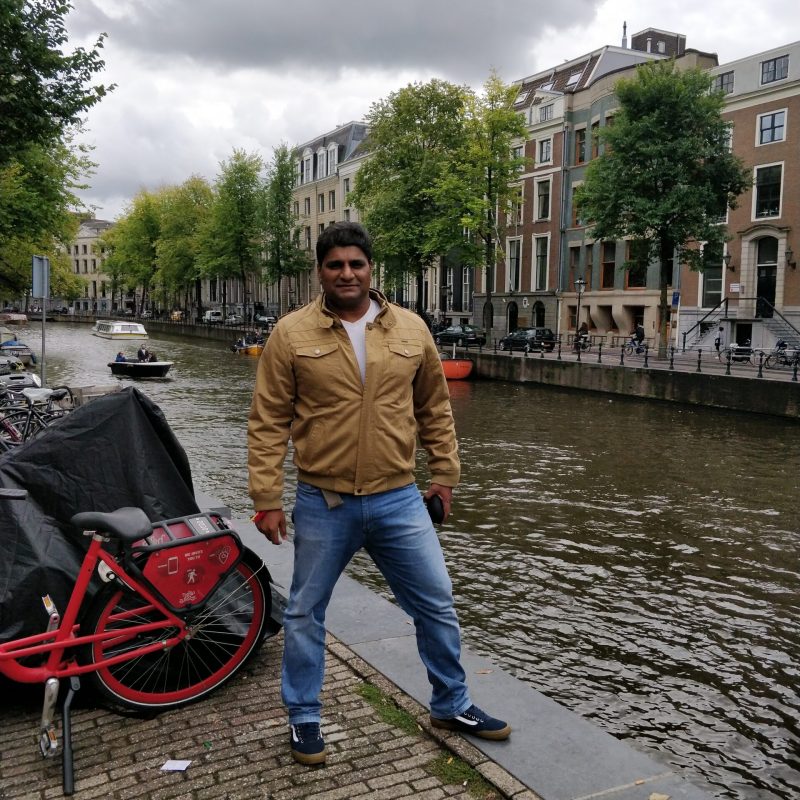Roshan Shetty is an author, mentor, blogger and podcaster. He is a corporate professional with seventeen years of experience in some of India’s best organisations.
His debut book ‘Shift Left’ delves into the abyss of emotional well-being amidst the pandemic. It enables the readers to develop an empathetic overview on life, and find a safe harbour in his book from their emotional dystopia. Through his book, blog, podcast and videos, one will be able to decode the science behind true happiness and growth. Let us hear what he has to say in a chat with Team Storiyaan.

5 Min Bit with Roshan Shetty
Interview
Questions and answers
Can you walk us through your research process while writing the book "Shift Left"?
I gulp everything down that I stumble upon to understand our emotions and psychology. A large part of my study has been through books of similar genre and research papers. Apart from the theory, speaking with people on their experiences helped me immensely. You cannot be researching on a subject without knowing how it impacts people in their quotidian life.
What are some of the societal narratives you want your readers to unlearn?
Happiness is one of the biggest scams sold to us since the Second World War to boost economies, where happiness is perceived to be a product or a goal rather than a state of being. We have been told happiness will take us out of our miseries, without been shown the way to cope with our failures. The gap in our expectations and our failures to meet those expectations is what brings us grief. This is something that I would want the readers to unlearn.
Can you explain how technology and emotional intelligence are interlocked and go hand in hand?
Artificial Intelligence, Machine Learning and the Internet are the pillars of technology that are shaping our present and the future, replacing humans in every task. Smarter the invention, greater is our euphoria. A sound emotional intelligence will plug the void that technology will excavate. It will help in creating deep purpose within our lives with technology as an aid and not the only purpose of our lives. Hence the rigour in our technological adoption should have an equal urgency in building our emotional intelligence.
What life lessons did you acquire while writing a self-help book?
The art of amalgamating life experiences of others into your theories has been riveting for me as a writer. Knowledge transcends when you connect with a diverse set of people and comprehend their emotions, their narratives. My key learning while reading or writing is that we know very less of what happens around in this world, and we should always remain a humble student.
We have currently been witnessing loads of moral policing like the love-Jihad law, what is your take on this?
In my eleventh chapter, I have strived to establish a moral code for humans in the 21st century, where the abandonment of all forms of moral policing is a critical aspect. We have to abolish the dynamics that is tearing the society and creating a “US vs THEM” narrative. We need to acknowledge that moral policing has created diversities in our unity and be more empathetic and inclusive to people rather than having a destructive ideology.
How can Chapter 9 of your book, "The dichotomy of fear" be useful to those living in fear, especially during this pandemic?
The chapter is written to differentiate between fear that strengthens us and fear that limits us. It explains rational and irrational fears. Once we can master this, diversions such as the ongoing pandemic can be effectively managed. This expertise makes an individual powerful. The chapter is very close to me as I have stated my experiences with chronic anxiety along with the science of what triggers fear in us.
Can you elaborate on associative memory and "Caught between lady Macbeth and Moses"?
Our associative memory function is what creates cognitive biases in our minds. It explains why we are more gullible to information which is familiar than true information. “The Lady Macbeth Effect” and “The Moses Illusion” are theories derived on how the associative memory operates and designs our thought patterns and behaviour. I read about this in Daniel Kahneman’s – Thinking Fast and Slow and have written an article on this subject on my blog.
How can your book help people live a meaningful life in the age of technology?
The information we are served on popular media streams is irrelevant to the critical problems we are beset with. No one is speaking on the dystopia the mindless tech consumption will create. Shift Left attempts to arrest this plague and build a mental fortress that can counter some of the latent but pressing questions. We have reliable information on our progression from apes to humans. But where are the answers on our current evolution from humans to robots?

